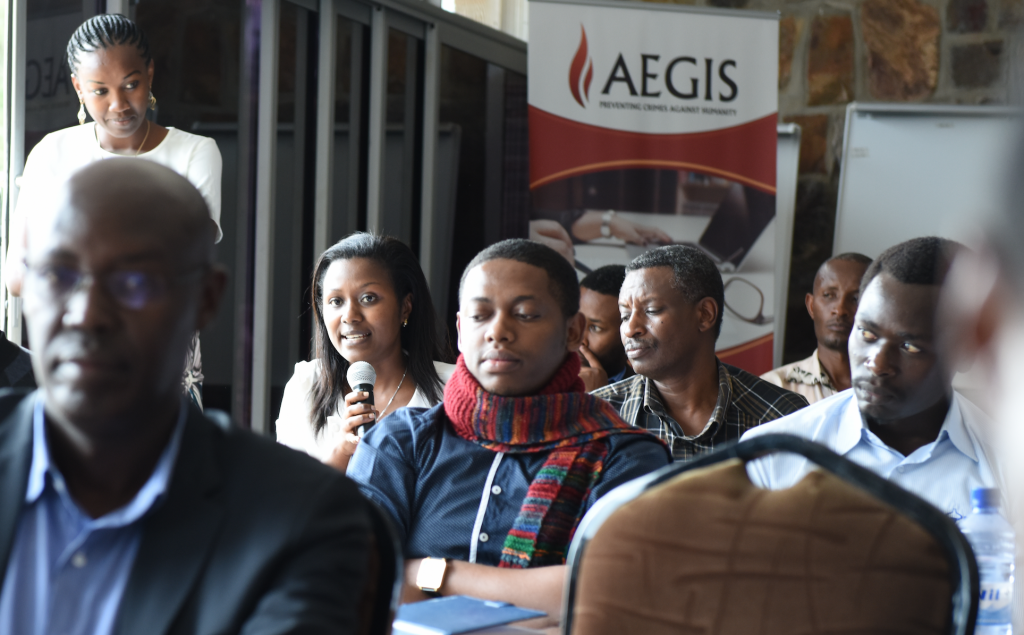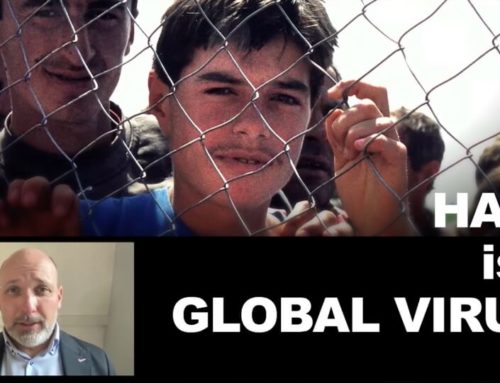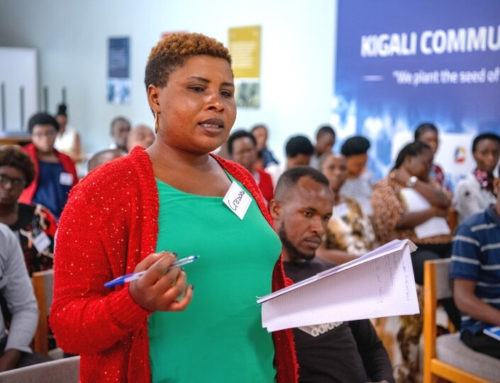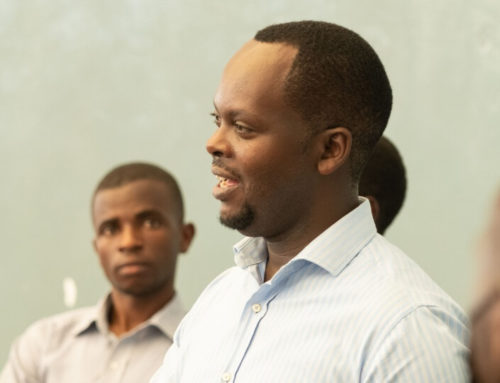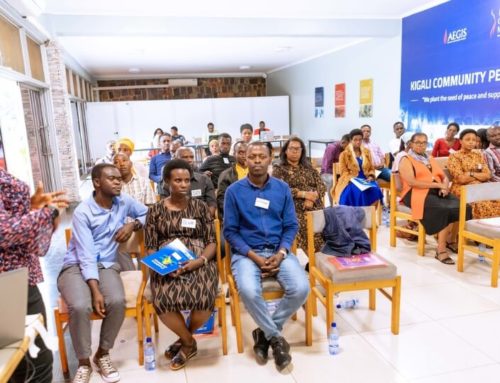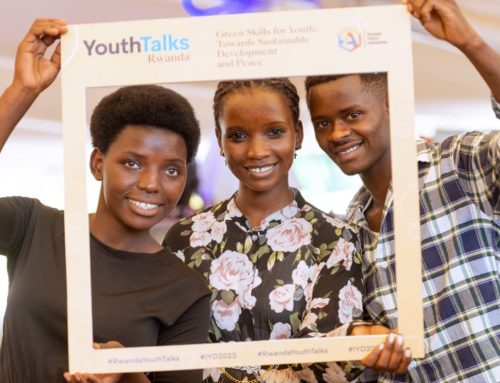Teachers of Umubano Primary School in Rwanda have acquired skills and knowledge on peace and values in training organised by Aegis Trust to help them in delivering the new competence-based curriculum.
Held at the Kigali Peace School during the week commencing 15 January, the three-day training programme introduced participants to the history of Rwanda, steps that led to the Genocide against the Tutsi, its consequences and steps that are leading to social cohesion and sustainable peace in Rwanda. Teachers learnt how to integrate Peace and Values Education in all the subjects and how to guide students in developing positive values at school and in their communities.
“The objective of this training is to help teachers to be inspired and instilled with the confidence that they can meet the challenge of introducing peace and values education in their classrooms,” says Appolon Gahongayire, one of the facilitators.
Musewe Stephen Onyango from Kenya, one of the teachers at Umubano Primary School, shared some lessons learnt and what he will do differently when he goes back to his school. “I learnt how Rwandans used to live in peace and harmony before the ideology of divisionism which created hatred among people,” he said. “I learnt also different ways to build peace in my school and in my community. From today on, us teachers, we are committed to build peace in the students we teach through peace education. I am now more determined than ever to encourage my fellow teachers to put our efforts together to prevent genocide from happening again.”
“We have benefitted a lot from this training,” says Emilie Munyakazi, another teacher at Umubano Primary. “I learnt how to integrate peace and values in different courses we teach. Teachers are considered as role models to the students they teach, if we show and teach them positive values, I am confident that they will grow with humaneness.”
The Kigali Peace School is a centre based at Kigali Genocide Memorial dedicated for training and events on peace education for formal Educators (teachers), informal Educators (parents), Youth and other community members, as well as Decision-makers and Researchers, through the Education for Sustainable Peace in Rwanda Programme(ESPR). The programme is designed to improve the delivery of peace and values education and support its implementation as part of the newly adopted national school’s curriculum.

